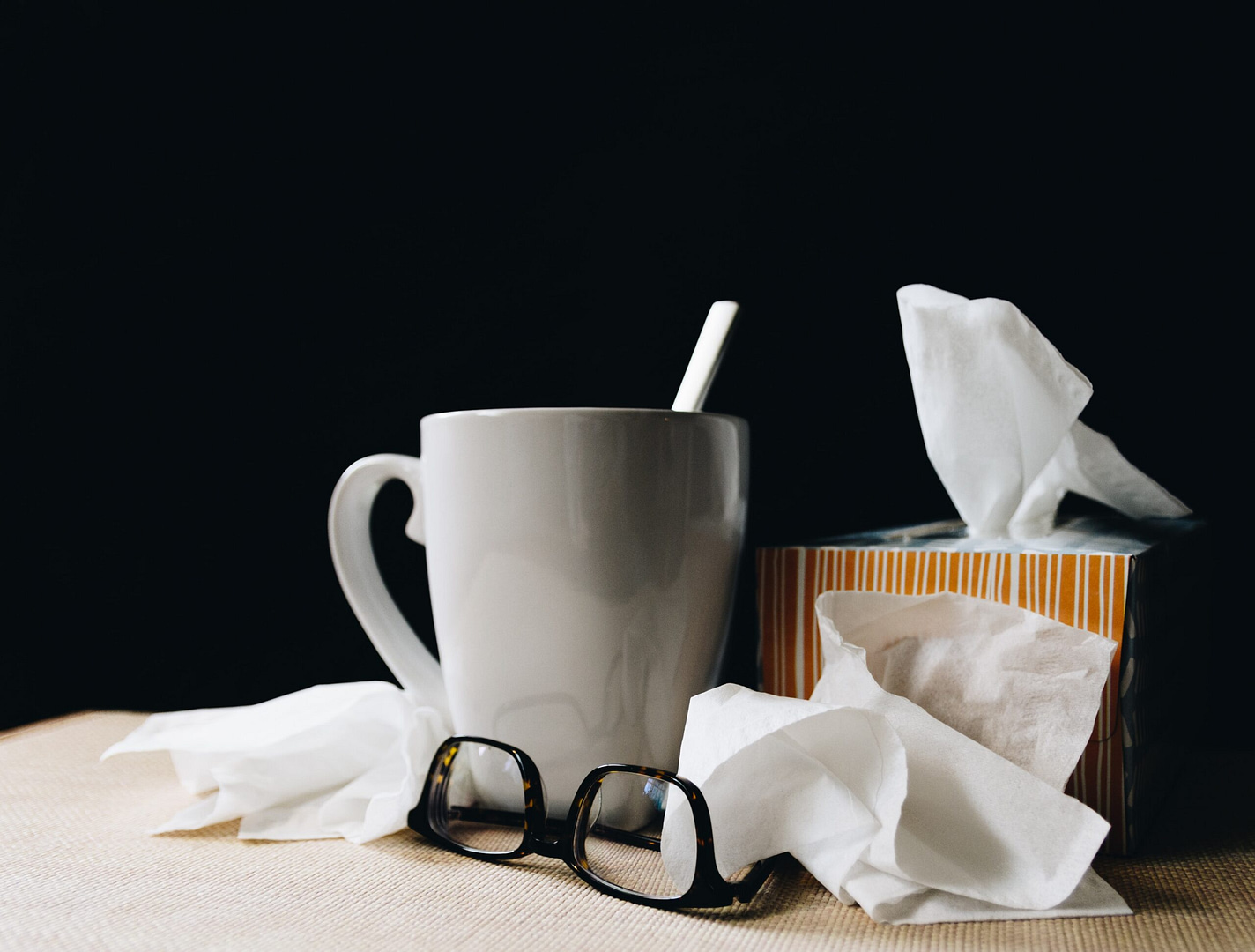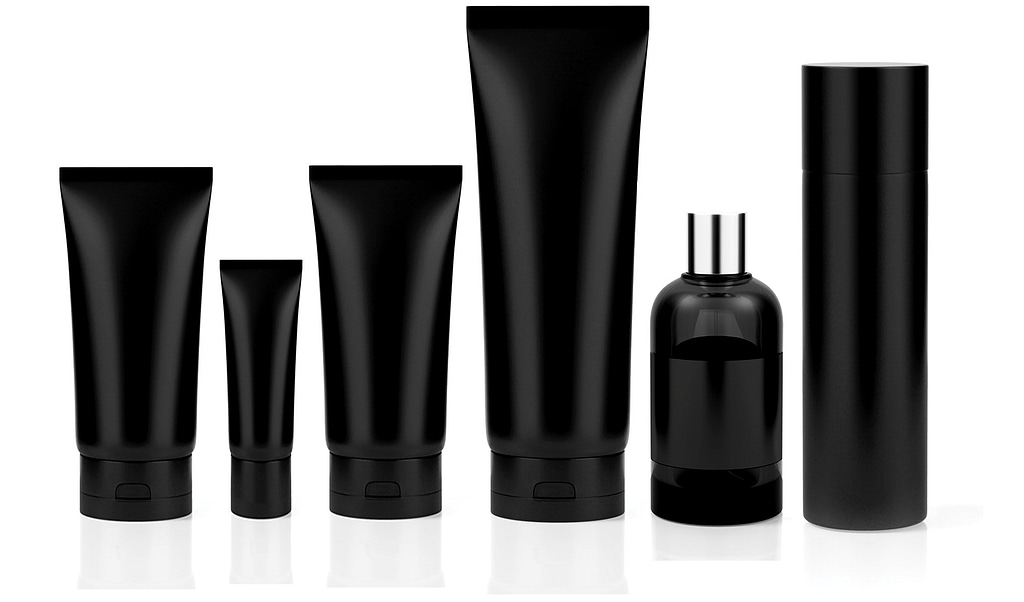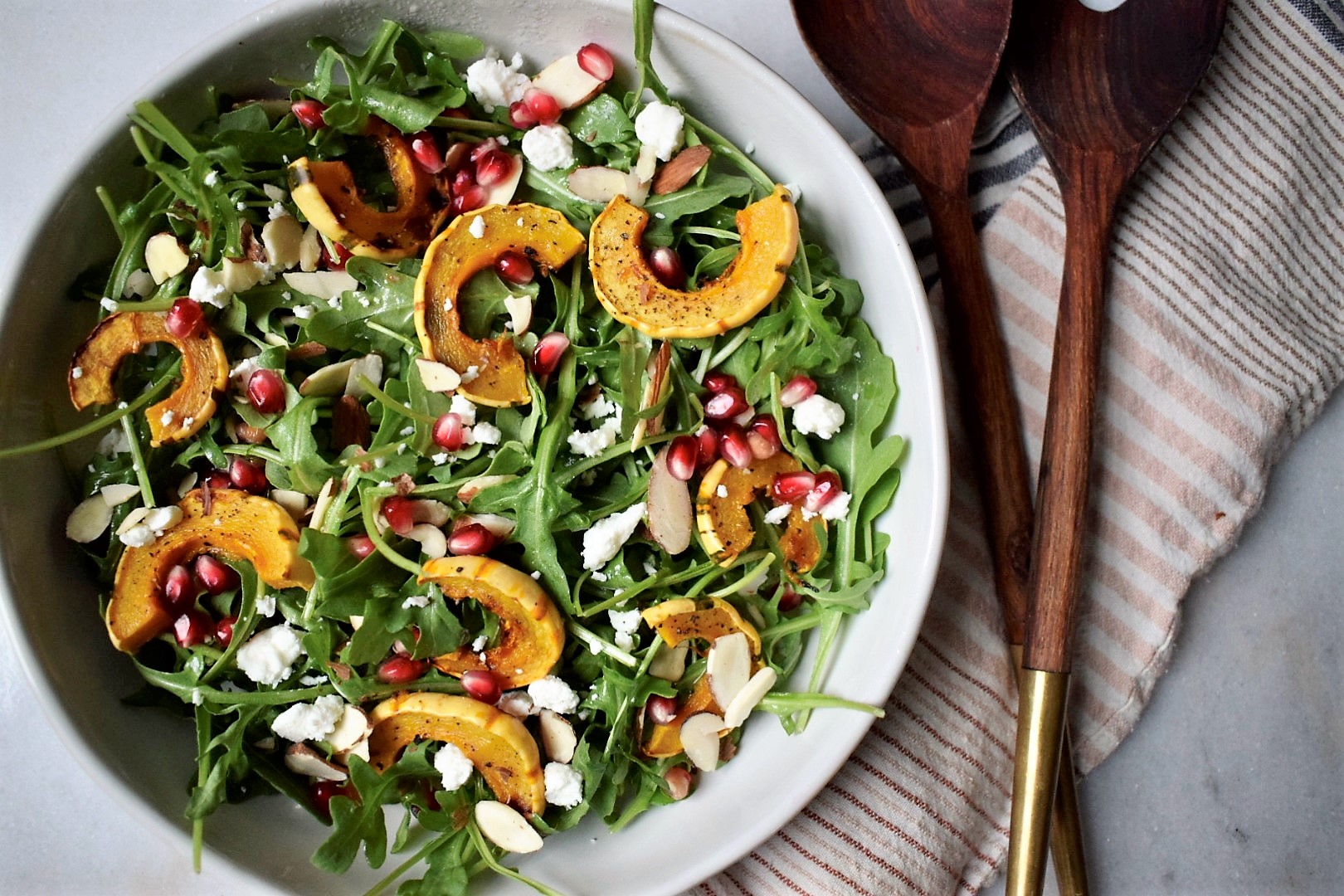7 tips for staying healthy during cold and flu season
This content is for informational purposes only. It is not medical advice. Discuss new supplements with your doctor.
I get lots of questions about what people can do to stay heathy during cold and flu (and now covid!) season. This is something I’ve thought about a lot in recent years between the pandemic and my experience as a mother with little ones. Having school-aged children has really opened my eyes to the amount of exposure there is for young families as well as the toll that frequent illness can take on children and parents. This post is a round of up ideas and resources based on my experience as a mother and an Integrative Nutrition Health Coach.
What’s wrong with the mainstream approach?
While there is a time and a place for medical interventions, I do have concerns about the negative consequences of antibiotic use and even over-the-counter medications when used frequently. The FDA has recently come out to say that a common active ingredient in cold and flu medications is ineffective – and therefore just unnecessary chemical exposure that I’d wager is not beneficial to the gut bacteria and long-term immune health. We should also be mindful about other medications that inhibit mucus production which is is actually one of the body’s “most important antiviral defenses” according to Dr. Robynne Chutkan, an integrative gastroenterologist and microbiome expert.
It’s also important to know that even a single course of antibiotics can damage gut health. In fact, “studies are finding that a single course of antibiotics alters the gut microbiomes of healthy volunteers—and that it can take months or even years to recover the original species composition.” Since nearly 70% of immune cells are in the gut, this also means that antibiotic use can hinder the body’s natural ability to heal and build resilience to future viral and bacterial threats. I’ve observed that this seems to create a vicious cycle (think about the people you know who seem to always be sick and have taken multiple rounds of antibiotics). My hypothesis is that sometimes the use of these medications results in poor immunity, thereby increasing chances for repeat illness.
What’s wrong with the mainstream mindset?
Our culture has normalized this trend of children and parents “always being sick,” and more unfortnately — the implication that it’s something we have no control over. On one hand, yes…it’s normal for children to get sick as they’re exposed to viruses and building up their immune systems. But is it normal for children to be really sick? Multiple times a year? Requiring medications and antibiotics repeatedly? Is it a sign of good immunity if the parents catch every one of these colds? I think we have to recognize that our day-to-day diet and lifestyle choices impact how often we all become ill, how severe the illness is, and whether we parents are taken down with whatever our children bring home.
Therefore, I see an opportunity for people to be more empowered to take better care of themselves and be more resilient. If you’re one of my readers, I imagine that you’re already bought into the idea that diet and lifestyle can impact your risk for disease and chronic health conditions. We now know that over 90% of the time, these are not genetic certainties. I want you to start thinking about less severe illnesses and viruses the same way (if you’re not already).
I hope these are helpful ideas that support you and your family this season and beyond! Please note this content is for informational purposes only. It is not medical advice, and I always suggest running any new supplements or major dietary changes by your doctor.
1. Day-to-day healthy diet and lifestyle habits are key
Your baseline health is the result of your daily diet and lifestyle habits. This has a massive influence on your immune health and ability to fight off whatever’s going around. I heard from so many people that the 2022-2023 school year was the sickest they could remember, and I saw that reflected in weekly emails from school about what was going around the classrooms. My children (a preschooler and first grader at the time) were exposed to multiple cases of Covid, RSV, strep throat, pink eye, stomach bugs, flu and lots of other colds at school (plus who knows what else on the dozen or more flights we took over the school year). But thankfully we stayed pretty healthy. There was some congestion and coughs, a couple restful days home from school per child (completely normal and expected for young kids budling their immune systems up)… and that was it. No sick doctor’s visits, no need for OTC medications aside from a couple Tylenols for me (I take 1/2 dose sparingly when I have a bad headache, about once a quarter), and another year without any prescriptions or antibiotics.
I credit 90% of this to our strong baseline health: the product of a nutrient-dense, anti-inflammatory diet, good sleep (and light) hygiene and making movement and time outdoors a daily priority. There’s no supplement that can take the place of those foundational pillars of health.
Sleep is so important I’m going to mention it again! Just one night of poor sleep can negatively impact your immune system and increase your likelihood of getting sick after being exposed to a virus. This is a perfect example of how our lifestyle can make the difference between merely being exposed and actually getting sick.
2. Remember that what you don’t eat is as important as what you do consume to stay healthy
As you can see from this post on the link between gut health and immunity, sugar in all forms (including refined grains), ultra-processed foods, inflammatory foods, and alcohol can damage the body’s natural ability to fight off illness. Regularly consuming these foods will hinder the immune system at any point, but they should really be avoided if you feel like you or your child is coming down with something.
On this note: I normally enjoy a glass of natural wine a few times per week, but when I had covid, I didn’t drink for two weeks for exactly this reason — from the day I felt that first tickle in the back of my throat until my energy levels and HRV were fully recovered. Between the impact on gut health and the negative impact on sleep (although the impact is minimized with natural vs conventional wine), it was something I chose to pass on so that I could do the things I care about more: exercising and playing tennis. I was also strictly gluten free (typically I have gluten maybe once a month, so that wasn’t hard or too unusual).
3. Day-to-day supplements to support immune health
Our day-to-day supplements include: a quality multivitamin, vitamin D3/K2, cod liver oil and probiotics. I also take magnesium, a supplement that supports mitochondrial health, drink low-caf coffee with immune-boosting medicinal mushrooms and a high quality matcha green tea daily.
I buy most of my supplements through Fullscript, which carries top-quality brands that you’d typically only find in Functional Medicine clinics. You can browse their full catalog or sort by Favorites > General or Immunity & Cold Support to see what I like and have been recommended by trusted practitioners. I’ve set it up to apply a 15% discount on all of your orders by shopping through this link. Here are some additional product notes and resources:
- Multi-Vitamins: Fullscript has great multivitamin options, but my husband never took them (the fact that there were 3-4 tablets/day probably didn’t help), so we switched to Athletic Greens in January and the habit’s finally stuck! This link gets you some free travel packs and a year’s supply of D3/K2 if you’re interested in trying. I’ve had to experiment with my children’s multivitamins too. Don’t be afraid to try different formats with supplements to see what works best for everyone (i.e. drops, liquid, mixes, etc.). That’s why you’ll see different formats tagged in my Fullscript Favorites.
- Vitamin D3/K2: is always part of the rotation for our whole family.
- Magnesium: I rotate between the Magnesium Glycinate in my Full Script Favorites and this combined form from BioOptimizers (code: JESSICA for 10% off). I also use Magnesium Chloride flakes (avoidable through Fullscript) in our baths regularly.
- Probiotics: I’m a big fan of the products from Just Thrive (15% off link). The Mega Sporebiotic that Fullscript carries is also excellent if you prefer to buy everything in one place.
- Medicinal mushrooms and adaptogens: I use Four Sigmatic products daily ($20 off link). Their Protect (chaga and cordecepts) instant coffee is my favorite, but I also drink the Think (lion’s mane and chaga) and Balance (ashwagandha and eleuthero) instant coffee regularly as well as the Reishi Elixir before bed occasionally. Some of these products are also on Fullscript!
- Matcha green tea is something I look forward to every afternoon and it happens to come with many health and immune benefits. I drink the organic, ceremonial grade Sun Goddess Matcha from Pique, which is quadruple toxin-screened. Check out the Matcha Love section of this previous newsletter if you want to learn more!
4. Try to nip it in the bud
I really stress this point about listening to your body and taking action early. Paying attention to the tickle in the back of your throat, lower energy levels, etc. can help arrest the progression of a cold and turn things around quickly in my experience. With a child, it’s often noticing the slight change in their voice when they’re getting congested. If you have a tracking device like an Oura ring, the HRV and Readiness scores are awesome clues and data points too! This is the best time to start layering in the extra supports noted below, making sleep and rest a bigger priority(!!), keeping hydration top of mind, and being more mindful about the quality of your (or your child’s) diet. Don’t wait until you’re really feeling poorly to take action! Give your immune system the support it needs immediately and you can often fight it off pretty quickly in our experience.
In terms of extras and supplements: at the first sign of any cold symptoms, I usually layer in some combination of bone broth, elderberry syrup or liposomal vitamin C, Cold Calm, Umcka Cold Care, propolis/echinacea spray, oil of oregano, quercetin, , curcumin and/or NAC. These are also available through Fullscript (see Favorites > General or Immunity & Cold Support).
5. Mindset matters
Try this mindset shift: “I am (or my child is) fighting something off” rather than saying you (or they) are “sick.” I’m big on the power of our words and self-talk, so you wont hear me saying that one of us is “sick.” Our bodies are still miracles that are performing at >99% perfection, even if someone has a runny nose or a cough. This empowering mindset also helps me to remember some extra self-care like getting to bed earlier, sipping on bone broth, skipping the glass of wine at dinner or opting for a walk or vinyasa class rather than a more intense workout I may have been planning. These small choices really do help your body and immune system (see #4). And how you talk to yourself (or to your children about their illness) is SO powerful.
Another important mindset shift: focus on supporting the body and the immune system rather than only trying to suppress symptoms. This one goes a long way too. You can’t keep living your normal life and hope that taking something to mask a symptom is going to heal you. We need to give the body what it needs to heal itself — and that includes rest, nourishing foods, and immune boosting supplements.
6. Heat therapy
Hippocrates said ‘give me a fever and I can cure any disease.’ And over two thousand years later, science has uncovered various ways that raising core body temperature can help fight off viruses. I never get a fever, so to rasie my core body temperature, I woll often take a hot bath with some magnesium chloride flakes or spend time in the sauna if I feel like I’m fighting something off. Regular sauna use is also believed to support the immune system, so you can think of this as a preventative measure as well (#1)! Note: sauna use and heat therapy while ill are not always a good idea – especially if you’re pregnant or have a heart condition. Check with your doctor before trying this.
7. Other natural remedies
We now have research that supports a natural remedy that’s been used for centuries: honey! A systematic review and meta-analysis showed that honey is more effective than standard care for upper respiratory tract infections and “provides a widely available and cheap alternative to antibiotics” given its antimicrobial properties. Notes: 1) I always opt for raw / unfiltered and 2) honey is not recommended for children under a year old.
Hot showers are also a go-to tool that can have an immediate impact when someone is congested. I find them especially helpful for my children, who usually struggle to blow their noses. The steam opens up their airways, loosens the phlegm and helps clear their nasal passages. I also like using simple sinus sprays, but hot showers are usually better tolerated, feel better and have a bigger impact.
I hope these ideas are helpful and support you and your family this season and beyond!
Are you ready to take your health to the next level? Or do you need help figuring out how to adopt a healthier diet and lifestyle that tames inflammation and support gut health and immunity? Send me an email at jessica@kaleifornian.com if you’d like to set up a free consultation to learn more about my health coaching services. You can see what my clients have to say about working together on my Testimonials page and in my Instagram Highlight.








